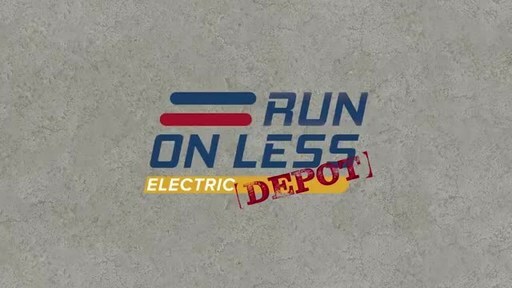Tesla Semi among 21 electric vehicles being tracked as part of NACFE’s research on scaling electric trucks at fleet depots.
FORT WAYNE, Ind., Sept. 7, 2023 /PRNewswire/ — The trucking industry is making strides in decarbonizing its operations. More fleets are making investments in alternative fueled vehicles, especially battery electric trucks. In an effort to help fleets understand the benefits and challenges of battery electric trucks in larger numbers, the North American Council for Freight Efficiency (NACFE), is conducting Run on Less – Electric DEPOT September 11-30 where it will not only track the activity of the 21 electric trucks — including two Tesla Semis — but will also look at total depot electric energy and fuel for all the trucks per day and what that will mean in total electrical energy if all trucks at the depot are converted to electric vehicles.
Tesla Semi among 21 electric vehicles being tracked as part of research on scaling electric trucks at fleet depots.
The Run is ON — Run on Less – Electric DEPOT Kicks Off September 11
“As trucking works on decarbonizing, fleets are investing in more electric vehicles at their depots which brings with it many benefits but also some challenges, especially around infrastructure and charging,” says Mike Roeth, NACFE’s executive director. “Yet leading fleets are tackling those challenges and are giving us access to their operations so we can share what they are learning with the rest of the industry.”
The Run will feature a variety of trucks covering a full range of duty cycles.
At Frito-Lay’s Queens, New York depot, two Ford E-Transit vans will be tracked operating in urban delivery.
At OK Produce in Fresno, California, a Freightliner eCascadia and an Orange EV will be tracked in local fruit and vegetable deliveries and terminal tractor applications, respectively.
At Penske’s Ontario, California location, a GM BrightDrop, a Navistar eMV and a Freightliner eCascadia, a light-, medium- and heavy-duty truck, will be followed.
At PepsiCo’s Sacramento, California depot, two Tesla Semis will be tracked in heavy-load long-haul transport operations.
At Performance Team’s Commerce, California location, two electric Volvo VNRs will be tracked conducting short-haul routes.
At Purolator’s Richmond, British Columbia hub, a Class 6 Motiv step van and a Ford E-Transit will be tracked in business and residential package delivery.
At Schneider’s South El Monte, California location, two Freightliner eCascadias operating in slip-seated drayage will be tracked.
At UPS in Compton, California, a Freightliner Custom Chassis MT50e last mile step van and a Freightliner eCascadia in a middle mile duty cycle will both be tracked.
At US Foods in La Mirada, California, two Freightliner eCascadias will be tracked in food delivery applications.
At WattEV’s Long Beach, California location, a BYD 8TT tractor and a Nikola Tre BEV tractor operating at the Port of Long Beach will be tracked.
In preparation for the Run, the NACFE team visited all 10 depots and interviewed 122 people about their experience with electric trucks. Fleet profiles with videos are posted on the Run on Less website and will be supplemented by Stories from the Run videos that will look at some of the main issues surrounding the electrification of fleets.
“We will be updating the metrics daily and adding videos on a regular basis, so we encourage people to follow the Run to learn from these 10 pioneering fleets,” Roeth says.
The Run is made possible through sponsorships with PepsiCo as an executive sponsor and Cummins and Shell as title sponsors as well as a host of companies that are event and supporter sponsors.
You can follow the Run here and on Twitter.
Click here for images to accompany this announcement.
Media Inquiries Please Contact:
NACFE: Denise Rondini, 773-951-8563, [email protected]
RMI: Amelia Tenne, 503-680-2462, [email protected]
ABOUT CALIFORNIA CLIMATE INVESTMENTS: Some of the fleets participating in Run on Less – Electric DEPOT are part of California Climate Investments, a statewide initiative that puts billions of cap-and-trade dollars to work reducing greenhouse gas emissions, strengthening the economy, and improving public health and the environment—particularly in disadvantaged communities.
ABOUT NACFE: The North American Council for Freight Efficiency (NACFE) works to drive the development and adoption of efficiency enhancing, environmentally beneficial, and cost-effective technologies, services, and operational practices in the movement of goods across North America. NACFE provides independent, unbiased research, including Confidence Reports on available technologies and Guidance Reports on emerging ones, which highlight the benefits and consequences of each, and deliver decision-making tools for fleets, manufacturers, and others. NACFE partners with RMI on a variety of projects including the Run on Less demonstration series, electric trucks, emissions reductions, and low-carbon supply chains. Visit NACFE.org or follow us on Facebook, LinkedIn and Twitter: @NACFE_Freight
ABOUT RMI: RMI is an independent nonprofit founded in 1982 that transforms global energy systems through market-driven solutions to align with a 1.5°C future and secure a clean, prosperous, zero-carbon future for all. We work in the world’s most critical geographies and engage businesses, policymakers, communities, and NGOs to identify and scale energy system interventions that will cut greenhouse gas emissions at least 50 percent by 2030. RMI has offices in Basalt and Boulder, Colorado; New York City; Oakland, California; Washington, D.C.; and Beijing. More information on RMI can be found at www.rmi.org or follow them on Twitter @RockyMtnInst.
SOURCE North American Council for Freight Efficiency

